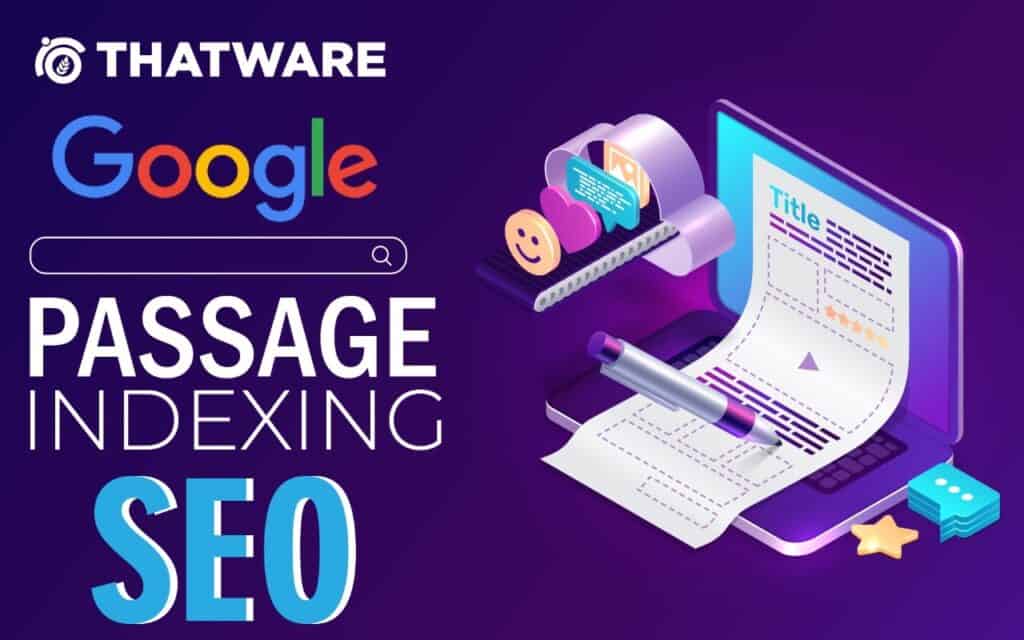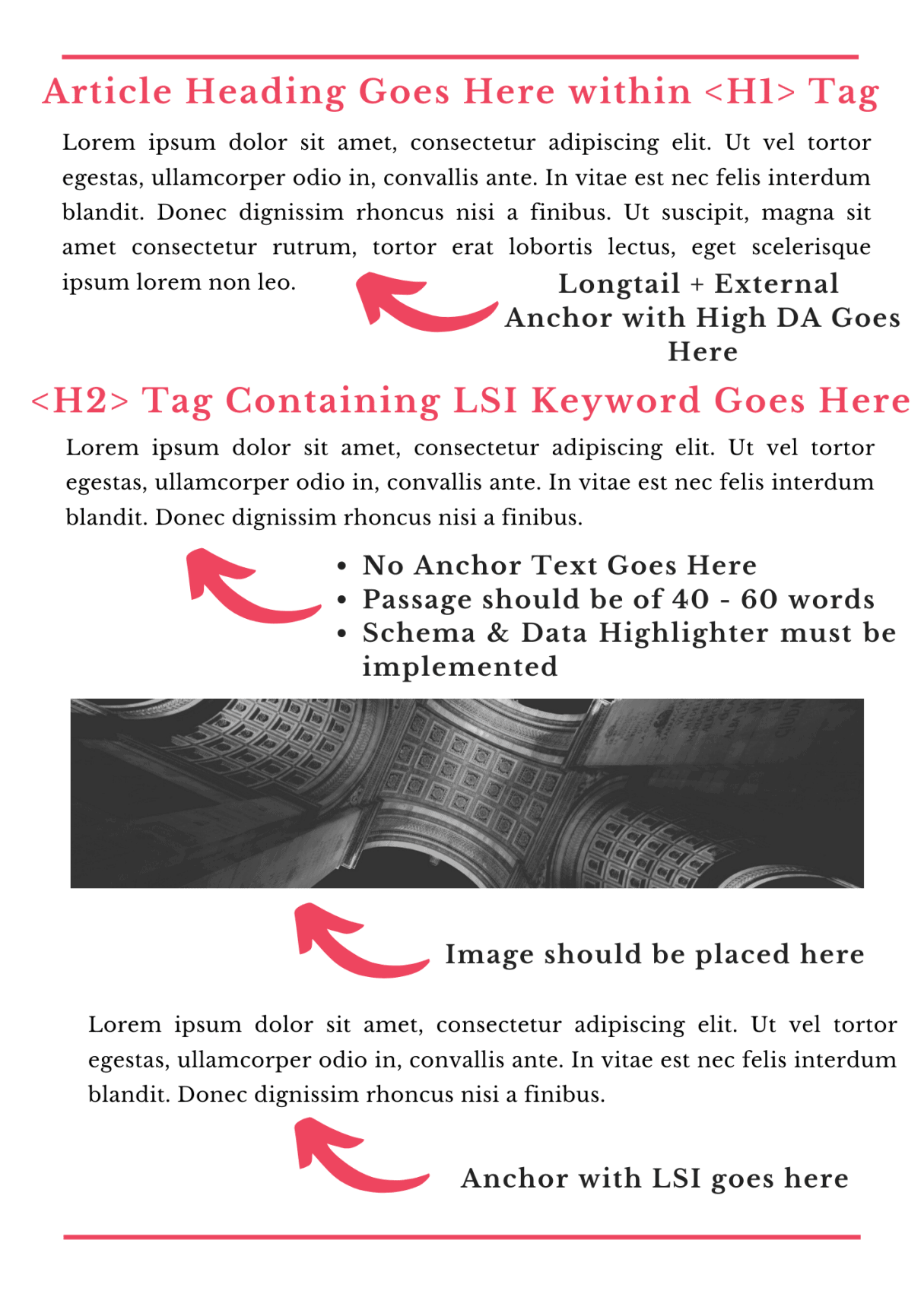How many times in a day do you search for information on the internet? Can you imagine your entire city doing the same? The information age continues to astound even the savviest computer scientists, and search engines enhance the experience by introducing us to different algorithms. One of which is the much-awaited passage indexing.

Simply put, Google will index passages from content relevant to your search regardless of the entire site’s relevance. If you have very specific queries, Google analyzes and indexes passages that will best answer your question without regard for the site’s relevance.
The same way internet speeds are growing, search results are now released faster through passage indexing. It makes the regular internet user happy, but how does this impact search engine optimization?
5 Things You Should Know About Passage Indexing
Since it is yet to be rolled out, the impact of passage indexing cannot be fully identified, but a few observations based on questions addressed to Google can be made.
1. Passage Indexing Will Change What The Results Page Will Look Like
Google’s Martin Splitt refers to passage indexing as passage ranking. Essentially, you’ll be seeing a ranking of passage snippets on your page rather than the regular blue lines linked to the webpage. This new algorithm will rank passages based on your query’s relevance regardless of the website’s overall theme. It doesn’t make things look longer. The snippets that you see now is merely a snippet without the passage ranking algorithm. If SEOs have been basing it on this algorithm, there may be a few changes needed moving forward.
2. Long Websites Can Benefit From Passage Indexing
If you write long-form content, you may benefit from passage indexing. The current algorithm may be skipping a lot of relevant information in your content because it does not relate to your main topic. Splitt confirms this, mentioning it is the “core” of this ranking change. Straightforward websites like E-commerce are not affected by this ranking. When a user searches specific, niche queries, websites with lengthy content, and even blogs can benefit because of Google’s capacity to analyze passages.
3. Passage Indexing Will Help People Who Have Little Knowledge On SEO
Passage ranking will help people learn how to structure the content for a better strategy. Some pages have a hard time ranking because they’re too long and are overshadowed by the main topic, rendering relevant content within the article ignored. Passage indexing in this way levels the playing field. But Splitt still clarifies that a proper structure will help systems identify important bits in your content. This algorithm will help other pages rank well.
4. Passage Ranking Has Nothing To Do With The Length Of The Passage In Your Content
Passage ranking can be lengthy or straight to the point, and it all depends on what the algorithm is picking up. But, since it’s a passage, it is expected to be at least a paragraph long relevant to the query.
5. Passage Ranking Will Look At Relevance Rather Than The Presence Of The Keyword
This algorithm will analyze passages that best answer the queries, which means relevance is essential. And in this note, a relevant answer in the body may outrank a page that merely mentions the keyword in its title. The featured snippets that you see now are just a portion of a page related to your query’s general topic. With this algorithm’s presence, it includes websites that are not entirely relevant to the theme of your question but has a “passage” that answers your query. In a way, it is a more inclusive algorithm.
7 Tips for Making Sure Your Website is Optimized for Passage Indexing
1. Passage Length
At the time of performing passage optimization, SEOs should aware of the length of the passage. For instance, if you are writing the content of a landing page containing 3000 words then the passage segregation should be 1% to 2% of the entire or you can at least maintain 3 to 6 passages of entire content length. This is also known as Passage Density.
2. Passage Word Count
In order to optimize passage maintaining the SEO guideline, one should make the passage length between 40 words to 60 words. The more comprehensive it is, the better would be chances for appearing as a passage!
3. Passage <h2> Tag
If a passage consists of a <H2> tag then it should have an LSI keyword into the tag. In other words, if a passage is followed by any h-tag then it’s recommended to use an LSI keyword within the H-tag whether it be <h1> or H2> or etc.
4. Use Data Highlighter
If you are optimizing a certain passage from the content then you have to use data highlighter with the help of Google Search Console’s Data Highlighter tool. The option varies in the list from site to site, suppose if you are optimizing a passage for an article based website, then you have to choose an article from the given list in GSC.
5. Use Image
It is recommended that you use at least one image for the particular page which you are optimizing for passage indexing. And it should be placed below a passage. For reference, please see the attached layout by end of this article!
6. Use Valid Schema Mark-up
It is recommended that you use the specific passage into the schema code for which you are optimizing the page. It’s advised to use JSON-LD for the mark-up!
7. No Anchor Text in between
The passage should not contain anchors but there should be internal and external hyperlinks above or below. Well, there is no such rule still it’s our practical experience that having no anchors within the passage helps with the optimization. Moreover, having an internal link / external link above or beyond also helps with the process.
Wrapping Up
To wrap up the process for passage index optimization, we have put together a contextual image as shown below. This will give an idea about the entire optimization procedure in a single picture.
Conclusion
We hope you have enjoyed some short DIY strategies which can help to make a website passage optimized. The information age is vast as it is fast, and with new algorithms, one can only anticipate the possibilities. But until it is fully rolled out, some of our questions will remain theories.



